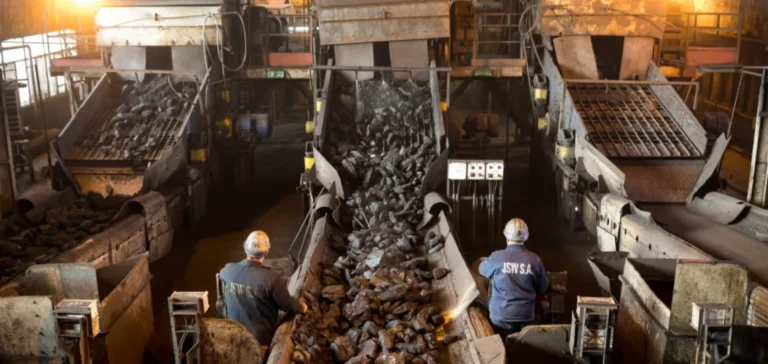Jastrzębska Spółka Węglowa (JSW), Poland’s leading coking coal producer, expects to reach its annual production target of 13.4 million tonnes in 2025, supported by the commissioning of two new longwalls in September. The state-owned company continues its industrial upgrade programme despite recent operational disruptions.
A new longwall was launched on 2 September at the Budryk site, with reserves estimated at 1.6 million tonnes. A second longwall was activated on 9 September at the Pniówek mine, bringing in an additional 500,000 tonnes. These additions bring the total number of operating longwalls to around twenty, according to a company official attending the Eurocoke summit in Amsterdam. The annual target was set earlier in the year and remains unchanged despite temporary shutdowns caused by technical incidents.
Response to production interruptions
JSW declared force majeure on 16 May following a fire on 7 May at the Budryk mine, which caused an estimated loss of 345,000 tonnes. Another incident in August also slowed operations. These disruptions impacted underground equipment, but restart efforts proceeded as scheduled.
The company operates six coking coal mines producing semi-hard coal with 8% to 8.5% ash content, 0.7% sulphur, and 24% to 31% volatile matter. A large portion of production is used internally to supply its own coking plants.
Support for national production capacity
JSW produces approximately 3 million tonnes of coke annually, including metallurgical coke, pea coke and nut coke. Maintaining this capacity is essential to supply Poland’s heavy industries, while international market pressure continues to mount.
Coke prices in Europe remain under strain, impacted by high availability from suppliers including Indonesia. In August, imported coke into Europe was priced at $228/tonne CIF at Amsterdam-Rotterdam-Antwerp ports. On 16 September, metallurgical coke 65/63 CSR FOB Indonesia was assessed at $200/tonne, unchanged week-on-week but down $4/tonne month-on-month.
Public investment in the mining sector
JSW, majority-owned by the Polish government, continues to invest in industrial resilience amid a volatile pricing environment. The expansion of production capacity forms part of a broader strategy to support strategic public energy assets. According to a company representative, these efforts aim to ensure continuity of national supply in critical raw materials despite adverse market conditions.






















